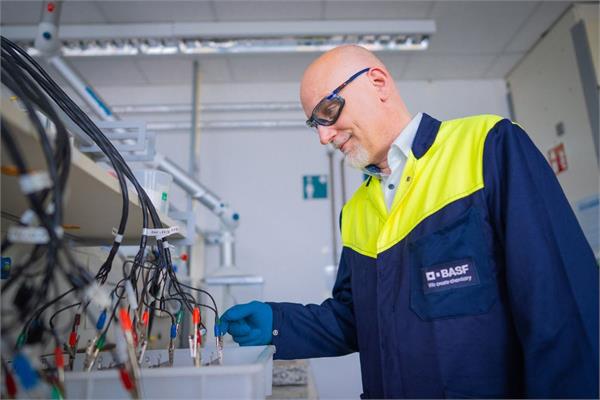
The European Corrosion Congress EUROCORR 2025, taking place from 7th to 11th September in Stavanger, Norway, promotes interdisciplinary collaboration to develop effective corrosion prevention strategies. BASF Coatings is actively contributing to this effort through its research on innovative coatings and corrosion inhibitors, aiming to extend the lifespan of metallic products and reduce greenhouse gas emissions.
Research into corrosion protection not only prolongs the life of metallic products but also plays a significant role in lowering CO₂ emissions. BASF
is at the forefront of this research, focusing on innovative solutions such as specialised coatings and corrosion inhibitors.
EUROCORR 2025, the leading international conference for corrosion science and technology, will be held from 7–11 September in Stavanger (Norway). Experts from across the globe will convene to explore how to better protect components from corrosion. Effective corrosion protection extends the lifespan of components, reduces the demand for raw materials, and significantly cuts greenhouse gas emissions.
“Protecting metals is an important topic in all areas of the industrial value chain. To minimise damage, for example from rust, we need interdisciplinary collaboration to research and develop new technologies and processes,” has stated Patrick Keil, corrosion protection expert at BASF Coatings.
Corrosion has a substantial economic impact worldwide. The IMPACT study, published by the Association for Materials Protection and Performance (AMPP), estimates that annual global costs of corrosion exceed three per cent of global gross domestic product. Corrosion affects nearly all industrial sectors, including energy, chemicals, pipelines, and transport sectors including aviation, automotive, rail, and shipping.
“The costs associated with corrosion are only one part of the problem. Corrosion is also a significant contributor to climate change. Figures published in a 2022 study suggest that 15 to 33 per cent of annual steel production goes towards replacing corroded steel, accounting for 1.6 to 3.4 per cent of global CO₂ emissions. Researching innovative corrosion technologies and improving corrosion management is thus a key lever to increase sustainability,” has added Patrick Keil.
At BASF Coatings’ headquarters in Münster (Germany), Keil and his team are researching corrosion protection through coatings and corrosion inhibitors. Digital tools also play a key role in BASF’s research. Using machine learning and artificial intelligence, the team analyses historical research data and chemical properties of molecules. These technologies assist in pattern recognition and predicting the most promising chemical compounds for corrosion inhibition, while also enabling simulation of their effects.